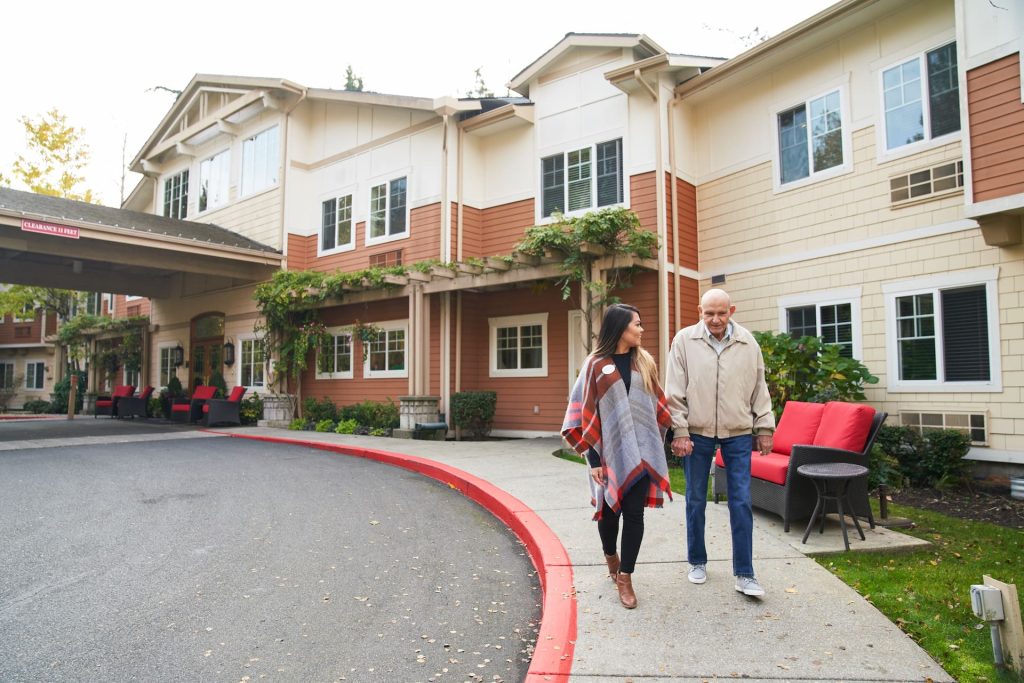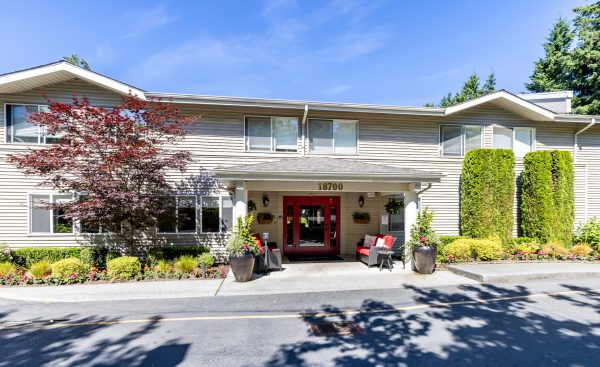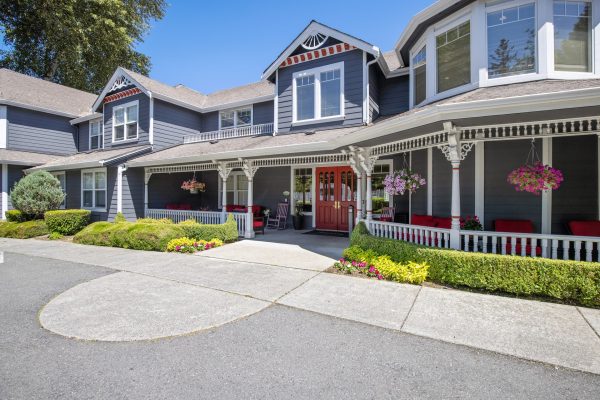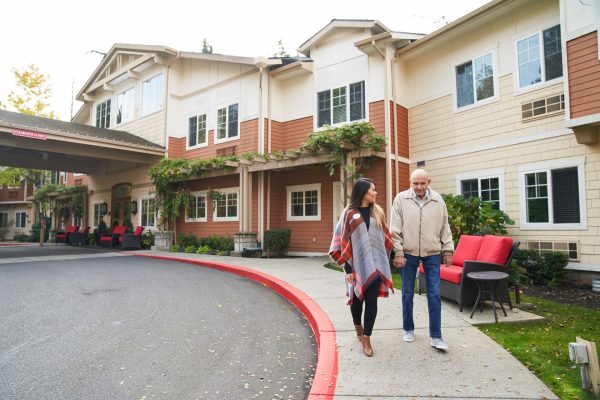
What is Medicare, and What Does it Cover?
Designed for seniors, Medicare is the largest health insurance program in the United States. More than 50 million American seniors receive benefits based on a number of program requirements and eligibility factors. Medicare is available to individuals who are 65 years or older, and some younger adults with disabilities. There are three parts to the Medicare program, which seniors in assisted living or memory care communities can use for their healthcare:
- Medicare Part A: Covers inpatient hospital care
- Medicare Part B: Focuses on outpatient hospital care and doctor visits
- Medicare Part D: Covers prescription drugs
Medicare Part A
Some refer to Medicare Part A as “hospital insurance.” Part A covers your loved one’s cost of placement in a hospital, skilled nursing facility, or hospice care for a specified amount of time. It will not generally cover assisted living. However, there are some services that you might receive within an assisted living or memory care community that are covered under Medicare Part A. The services may include some preventive care costs, acute medical care in an emergency, physical and occupational therapy, medications, speech and language pathology services, medical supplies, medical equipment used at the community, dietary counseling, and ambulance transportation.
Medicare Part B
Medicare Part B is similar to Part A, as it deals with preventive screening and treatments for the elderly. Coverage benefits can include an office visit to a doctor to test for a chronic condition, like diabetes or arthritis, cancer screenings, glaucoma tests, annual wellness visits, lab work or necessary x-rays, and immunizations like the annual flu or pneumonia vaccines. Some products, such as therapeutic shoes or blood sugar test strips, can fall under the cost of Part B.
Medicare Part D
Medicare Part D provides prescription drug coverage for eligible individuals. Eligible seniors receiving care in an assisted living or memory care community, senior independent living community, or nursing home can get help with the cost of prescription drugs with Medicare Part D. Seniors enroll in Part D during annual open enrollment from October 15th through December 7th each year.
What is Medicaid, and What Does it Cover?
Although Medicaid and Medicare are clearly different, some seniors may qualify for both if they are very low income and over the age of 65. Because each individual state government administers Medicaid, they have leeway in how this program is implemented. To be reimbursed by the federal government, each state must offer qualified participants certain mandatory benefits that include:
- Inpatient hospital services
- Outpatient hospital services
- EPSDT: Early and Periodic Screening, Diagnostic and Treatment services
- Nursing facility services
- Home health services
- Physician services
- Rural health clinic services
- Federally qualified health center services
- Laboratory and X-ray services
- Transportation to medical care
Medicaid assistance for assisted living changes by state. Because each state has considerable latitude within the federal government guidelines, each state can set policies for how they assist individuals residing in assisted living communities. Because benefits vary by state, we recommend that families review their state’s specific Medicaid information for clarity. Also, many assisted living communities, including Aegis Living, do not accept Medicaid, so you will want to ask the communities that you are touring about their policy.
How to Find Out if Medicare or Medicaid Covers Your Needs
To understand your individual state’s Medicare and Medicaid guidelines, contact the State Medical Assistance Office at 1-800-MEDICARE or visit www.medicare.gov. Or visit the Medicare and Medicaid Services website at www.cms.hhs.gov. We also suggest that you speak with an elder law attorney to help complete a Medicaid application and navigate the nuances of the application process.
Other Options for Financing Assisted Living

As you begin to research senior care options and how to pay for your parent or loved one’s care, it’s important to remember that payment methods will depend on the unique circumstances, supportive services needed, and resources of your family. And there are many options to explore when researching how to pay for long-term senior care.
VA Aid and Attendance Special Pension
The Department of Veterans Affairs is committed to providing benefits and services for aging veterans, including their changing healthcare needs as they age. Many veterans and their families are not getting the benefits they are eligible for because they are unaware of these available programs or how to file for these benefits.
The VA Aid and Attendance Special Pension, also known as the A&A Pension, is for qualified veterans or their surviving spouses to receive tax-free monthly sums meant to help defray the costs of assisted living and memory care expenses. For more information and to see if you are eligible, contact a Veterans Service Officer at a regional VA office or call 1-800-827-1000.
Long-Term Care Insurance
Long-term care insurance is a helpful option to cover a portion of the costs of an assisted living community. Long-term care insurance differs from traditional health insurance. It helps cover the costs of healthcare services and support when your parent can no longer care for themselves, whether that is in their home, assisted living, memory care, respite care, hospice care, or skilled nursing.
Private Pay
In many cases, residents and family pay for assisted living or memory care by selling their house, assets, or tapping into their retirement savings and investments to pay for these costs.
Paying for an assisted living or memory care community can be seen as a challenge for many families, but it does not have to come from one source. We believe that with the right amount of foresight, planning, and research, long-term senior housing can be affordable for your elderly parent or loved one. Contact an Aegis Living community near you to take a tour or to better understand the costs associated with living in one of our communities.

Next up
How To Choose A Community
When your family begins their search for assisted living, you are not only seeking a place to live but needed services and assistance for your loved one now and into the future. It’s important to strike a balance between finding a place where your parent or loved one feels at home and comfortable with meeting their care needs and within budget. The top of your list as you research assisted living options is excellent staff, quality care, and comfortable accommodations. But don’t overlook the small touches during your tours that can make a difference for your parent or loved one. Let us help you step-by-step as your family starts the journey of exploring senior care.
Ready to Find Your Perfect Community?
See what Aegis Living has to offer near you! If you’re feeling overwhelmed, just give us a call and we’ll be happy to guide you.
Communities Nearby

Lynnwood
18700 44th Ave W
Lynnwood,
WA 98037

Kirkland
13000 Totem Lake Blvd NE
Kirkland,
WA 98034

Aegis Lodge (Kirkland)
12629 116th Ave NE
Kirkland,
WA 98034